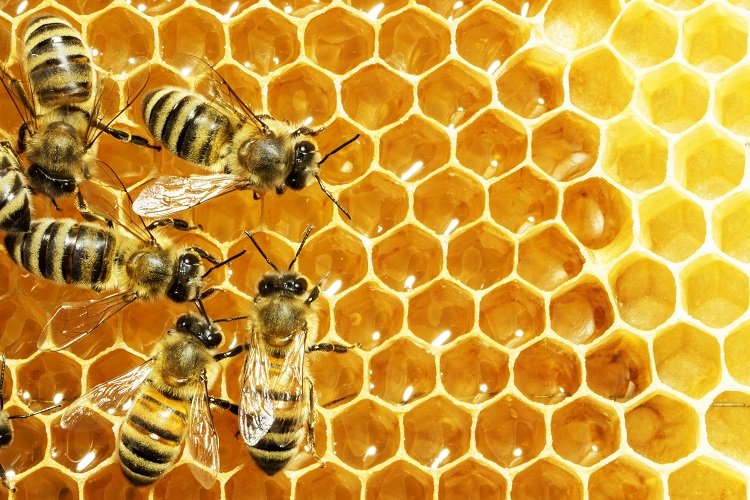
Visit our other sites
-
Fapas - Proficiency Testing
Globally recognised provider of proficiency tests, running over 400 tests annually across an extensive range of matrices and analytes
-
Great Crested Newts Testing
A single sample taken by an ecologist at any time during the newt breeding season can determine their presence or absence, saving you time and money
Nick is an terrestrial ecotoxicologist focusing on the effects of organic substances including agrochemicals, veterinary medicines and pharmaceuticals on non-target arthropods, honey bees, terrestrial plants and soil organisms.


-
Area of expertise
Terrestrial Ecotoxicology
-
Years of experience
18
-
Highest qualification
BSc (Hons)
Nick has a vast experience on terrestrial ecotoxicology and environmental fate studies.
Science lead in the non target arthropod and terrestrial plant ecotoxicology team at Fera
Over 15 years experience working on a wide range of GLP compliant non-target arthropod, honey bee, terrestrial plant and soil organism studies, both in the lab and field in the UK and Europe.
Experienced GLP study Director for laboratory, semi field and multi site field studies.
Responsible for the management and delivery of both regulatory and non-regulatory studies.
More about chemical regulation
Regulations and restrictions on the use of chemicals to tackle plant and animal pests and diseases are becoming increasingly stringent, which means the range of chemical options available for tackling these threats is constantly being eroded. It’s essential to ensure that any chemicals used in the environment do not pose a threat to plants, wildlife and ecosystems, while ensuring they are effective against target pests and diseases.
Latest Papers and Articles
Wilkins S; Jarratt N; Harkin S; Thompson H; Coulson M; (2013) "Effects of solvent on the toxicity of dimethoate in a honey bee in vitro larval study". Pest Management Science 69(4),462-463, http://onlinelibrary.wiley.com/doi/10.1002/ps.3465/abstract
Jarratt N, Thompson H, (2009) Comparison between the Sensitivity of Enchytraeids and Lumbricidae to Chemicals, in Particular Plant Protection Products. A Report to EFSA CFT/EFSA/PPR/2008/01 Lot 3. FERA. EFSA Supporting Publications, Volume 6, Issue 8, November 2009.
UK Defra, 2008. Are pesticides risk assessments for honeybees protective of other pollinators? SID 5 Research Project Final Report. Defra Project Code PS2237

Nick and their team work with customers to deliver the following services within Fera...
Terrestrial Ecotoxicology focusing on the effects of organic substances including agrochemicals, veterinary medicines and pharmaceuticals on non-target arthropods, honey bees, terrestrial plants and soil organisms.

Ecotoxicology
Helping commercial companies to accurately assess the toxic impacts of plant-protection products and veterinary medicines on a range of ecosystems and species.

Analytical Chemistry
Fera offers a wide range of analytical services using sophisticated analytical instrumentation and can provide assistance in analytical method development in support of environmental toxicology studies, biotechnology, formulated product analysis, analytical method validation to GLP requirements and much more.
Latest Papers and Articles
Wilkins S; Jarratt N; Harkin S; Thompson H; Coulson M; (2013) "Effects of solvent on the toxicity of dimethoate in a honey bee in vitro larval study". Pest Management Science 69(4),462-463, http://onlinelibrary.wiley.com/doi/10.1002/ps.3465/abstract
Jarratt N, Thompson H, (2009) Comparison between the Sensitivity of Enchytraeids and Lumbricidae to Chemicals, in Particular Plant Protection Products. A Report to EFSA CFT/EFSA/PPR/2008/01 Lot 3. FERA. EFSA Supporting Publications, Volume 6, Issue 8, November 2009.
UK Defra, 2008. Are pesticides risk assessments for honeybees protective of other pollinators? SID 5 Research Project Final Report. Defra Project Code PS2237

Nick and their team work with customers to deliver the following services within Fera...
Terrestrial Ecotoxicology focusing on the effects of organic substances including agrochemicals, veterinary medicines and pharmaceuticals on non-target arthropods, honey bees, terrestrial plants and soil organisms.

Ecotoxicology
Helping commercial companies to accurately assess the toxic impacts of plant-protection products and veterinary medicines on a range of ecosystems and species.

Analytical Chemistry
Fera offers a wide range of analytical services using sophisticated analytical instrumentation and can provide assistance in analytical method development in support of environmental toxicology studies, biotechnology, formulated product analysis, analytical method validation to GLP requirements and much more.

Copyright © 2025 Fera Science Limited (“Fera”). All rights reserved.
For further information about how Fera uses any personal data collected from you, please see our Privacy Notice at www.fera.co.uk/privacy-policy.


